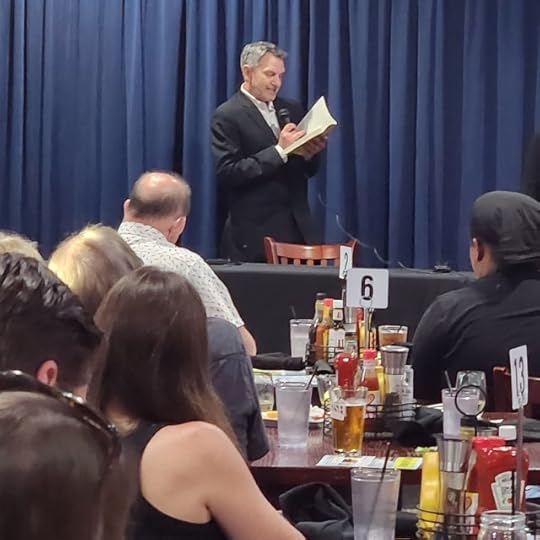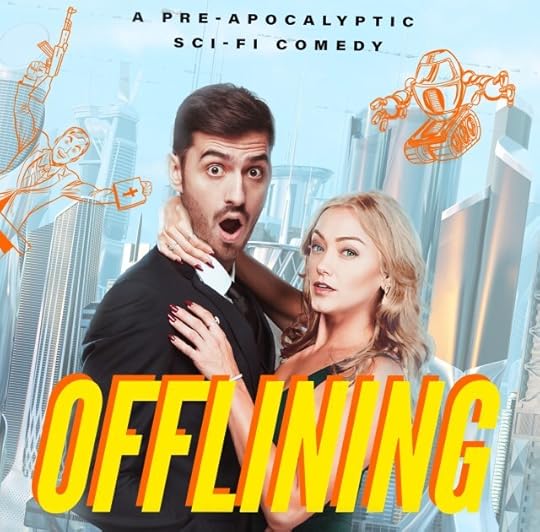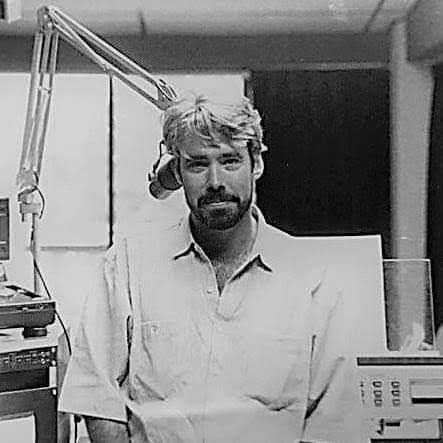George Weinstein's Blog, page 2
August 28, 2023
Terry Kay, an Author Everyone Should Read

Terry Kay was one of those rare authors who deserved a statue after his passing in 2020 or a literary center like the one that honors Pat Conroy in Beaufort, SC. You may know Terry from his international bestseller To Dance with the White Dog, The Book of Marie, or some of his other classic works. Not only a brilliant author across numerous genres, Terry was also a friend, teacher, coach, and mentor for many writers; a guide to the magic of story for readers; and, for me, something of a father figure for more than a decade. I’ve often said that when I grow up, I want to be Terry Kay.
The Georgia Writers Museum has honored Terry and his artistry with an extraordinary exhibit that is open to the public at no charge. You can see memorabilia that spans his lifetime, from his youth to his many writing awards, and learn about his profound impact on the Georgia literary landscape as well as on individual authors such as his fellow Georgia Hall of Fame inductee Philip Lee Williams, Lauretta Hannon, Renea Winchester, Rona Simmons, and others, including myself.
If you’ve read a few of my books, you’ll recognize Terry as a recurring provider of endorsements that grace the front or back covers. We lunched sometimes and talked on the phone more often. He cajoled me about needing to find another agent, a bigger publisher, to never be satisfied with my current literary lot. And always, he asked in a rumbling Old Testament voice what I was writing. He asked this of everyone he mentored—apparently in the same tone. Woe be unto the writer who confessed about not working on anything. He would chastise me about wasting my gift, something bestowed that made me duty-bound to use it to my utmost. The longer he lectured, the more worked up he became. Sometimes I feared he would astral project from his home to mine and smite me.
Fortunately, he wasn’t a smiting sort of demigod—he just didn’t want to see talent or time squandered. With 18 books and scores of short stories, essays, and articles published, he certainly didn’t let grass grow under him. If he’d only been one of the finest writers of the last half-century, he would’ve been worthy of the museum exhibition, but he was also a great teacher of the writing craft.
His association with the organization I’ve devoted myself to, the Atlanta Writers Club (AWC), started in 2007, thanks to intrepid recruitment by our then-VP of Programs, Barbara Collins. He arrived to do one presentation, but then I never quite let him leave. He appeared subsequently as a frequent workshop presenter, an honored guest at our annual picnic, and a sometime panelist. Whenever I asked him to drive over from his home in Athens, he happily obliged. He even lent his name to the award we give for our annual fiction contest, and he provided the intro and outro to the AWC’s centennial celebration video in 2014.
His insights were brilliant. In one of his many workshops presented to the AWC over the years, Terry stated, “As noble as it might otherwise seem, the practice of writing is basically an act of manipulation pulled off by con artists with an addiction to words.” When asked about the most important concept in the craft of writing, he said, “The verb.” Check out the verbs in his novels, and you will see he practiced what he preached.
One of the finest things he wrote was a poem titled “While Reading.” You’ll find this on his website. Print, frame, and hang it beside your desk or bookcase. It’s Terry’s gift to readers and writers alike.
I am eternally grateful for the wisdom he so generously gave, and I am personally indebted to him for his many kindnesses. I love Terry’s writing, and I love and miss the man. You owe it to yourself to make a pilgrimage to the quaint town of Eatonton and visit the Georgia Writers Museum shrine that honors him.
The post Terry Kay, an Author Everyone Should Read appeared first on George Weinstein.
July 27, 2023
Writers, When Do You Harness the Magic?

“I don’t like writing; I like having written.” Rick Bragg and many other famous writers have said this to me, and the quote has been ascribed to countless others as well. It’s often how I feel, because sometimes the physical act of conceiving of one word to put after another and then another and another ad nauseum can be, well, nauseating. Other days, the words flow freely, but in more than 20 years as a novelist, I’ve never had the sensation William Kent Krueger and some other great writers have described: that of receiving a story fully formed and seemingly dictated by a muse. They talk about feeling like a scribe taking dictation as some mystical force tells them the story, and they merely transcribe it. The process is so easy, they almost feel guilty putting their name on the finished manuscript. I envy the hell out of them.
Many writers I know, including my wife—author Kim Conrey—and my favorite nonagenarian Ed Gruber, love the writing experience itself, and their joy comes through in their work. Romance, emotional tension, physical danger, and other dramatic situations as well as plentiful humor spring from their pages. You can tell they had a great time writing those passages. When they sit down to create, they harness the magic of inspiration and produce stories that make you feel genuine emotions.
I’ve blogged about the writer-as-magician in previous posts. There’s even a scene in my amateur sleuth murder mystery Aftermath where author David Stark explains this to the protagonist, Janet: the ability to take the squiggles and lines of our made-up alphabet and string them together to form words (also invented) that cause readers to feel a genuine, deep-down emotion is doing real magic. And I’ve had some moments writing all my books where I provoked tears or laughter with my own words, but for me the magic of the writing life comes through the strongest when I talk to readers.
Maybe I’m a born salesman, or perhaps it’s a skill I’ve forced myself to learn, but when I’m in a bookstore or at a craft fair booth doing a signing, I love the experience of meeting readers and telling them about my novels and the stories behind the stories. When a customer realizes that one of my works appeals to them, and they’re excited to take it home and start reading it, I feel a magical connection with them. They were seeking an escape, an entertaining story, or something to make them feel deeply, and my book filled the bill. I always hope that trust they put in me and my work isn’t tested or subverted. So far, no one has gotten in touch to tell me they disliked my novel. If they didn’t care for it, I guess they won’t be reading this post, because they would’ve unsubscribed from my mailing list long ago! Speaking to a book club gives me even more of that thrill because these folks liked a story of mine enough to invite me to discuss it with them. It’s an honor I never take lightly and never decline.
For me, there’s something special about meeting a stranger and enthusiastically telling them about a story that I felt inspired to write. When they ask which novel is my favorite, it’s like asking a parent to say which child they love the most. Each book holds a special place in my heart for different reasons. I tell them those reasons, and often one story in particular connects with them and what they were looking for. Sometimes they’re seeking a book to give as a gift, and I have the additional privilege of helping them select the story that will resonate with the recipient and reflect well on the giver. In all these circumstances, I feel the honor—and the magic—of the writing life.
When do you, dear writer, derive that magical feeling of writing or having written?
The post Writers, When Do You Harness the Magic? appeared first on George Weinstein.
How the Magic of the Writing Life Changes

Readers might assume that the magic of writing—the writer’s enthusiasm for the craft, the thrill of expressing creativity and imagination—is a constant feeling that we summon at will, like a sorcerer gathering power from the ether, whenever we work on our manuscript. The reality is that the magic changes as our writing journey takes us through the finished work and into the business of publishing, marketing, and sales.
When many writers start their first manuscript, the magic of the writing life is indeed contained in their imaginings about what the completed book will be, how it will be received, and what attention/fame/riches might eventually result. Their mind projects a Pinterest-like board of images, stills that capture the drama of the scenes they’re excited to write, the book readings and signing events they’ll do, the shows they’ll appear on.
These images provide the motivation—the fuel for the creative engine—when the reality of writing a book-length manuscript begins to hit home: the difficult days when the right words don’t flow; the bone-deep knowledge that a scene, chapter, or even the whole book doesn’t work and will need to be rewritten; the seemingly endless editing to make every sentence as good as it can be. Some quit: most writers never finish what they start. Others remember why they embarked on the journey, and they review that mental Pinterest board and persevere.
The ones who finish then must decide how to share their work with the world. Will they self-publish it or seek the seal of approval of a traditional publisher? Either path requires effort and compromise. The self-published authors will get their book in the hands of readers much faster than the traditionally published ones, retain more control, and perhaps realize their vision for the book more completely, but traditionally published authors stand a much better chance of seeing their labor of love in bookstores around the nation or even the world in a variety of languages, and maybe they’ll witness their book climb the bestseller lists. As with everything else in life, the business side of writing is all about tradeoffs.
For those who simply want a physical keepsake to share with family and friends, the magic for them is in imagining those people’s reactions when the author hands them the book and delighting at their positive reactions. For those with a commercial goal, the magic of the writing life is refocused on the practicalities of the book as a product: how a great front cover will draw readers to it, how the back cover copy will intrigue them, and how blurbs from famous authors and reviewers will provide the credibility needed to convince the buyer to give it a try.
Regardless of the publishing decision made and the end goal, the result is a group of authors who completed one leg of the writing journey and now can display copies of their book to others. Those who wanted to share their book with family and friends get to do so, and hopefully the reactions are as positive as they’d hoped for, to keep the magic alive as a feeling of a task completed satisfactorily.
For those of us who want to sell books to strangers—the commercial outlook—the magic morphs again as these authors enter the marketing side of the writing life. Writing and editing were plenty hard as tasks, but figuring out how to sell one’s work in a market already saturated with books, with millions more being published each year, can turn that initial Pinterest board of dreams into a funhouse mirror. Ads that authors purchase to get their book seen might not pay off much or at all. Publicists’ promises might be unfulfilled. People tell the author how much they love the book, but they never post a review to boost its credibility with others who stumble upon it. Sales don’t match the expectations of the publisher and/or the authors themselves. Where is the magic of writing now?
For me, the magic is in the one thing I can control: my interactions with readers. I feel it at book signing events when I tell someone about a book in a genre they love, and they purchase it with enthusiasm and tell me they’re going home to start it immediately. I feel it when telling a book club the story behind the story and discussing their perceptions of the tale. I feel it when writing these blogposts, virtually connecting with readers and fellow writers to explain my thoughts and emotions about the writing life and “how the sausage gets made.”
I hope I convey some of that magic when I talk to you in a book club, retail setting, or book launch event, or when you read these words. It’s the best part of the writing life for me, and the reason I endure the pain of giving birth to yet another book every few years: so I have the pleasure of telling you about a new story you might enjoy.
The post How the Magic of the Writing Life Changes appeared first on George Weinstein.
June 25, 2023
Finding the Funny

As anyone who enjoys trying to crack a joke knows, humor is hard. The deconstruction of its elements is about as amusing as an autopsy. When I was initially writing my sci-fi comedy Offlining, and then going back to it every few years over the past decade, what I rewrote the most was the schtick. What kept me from publishing it long ago was the desire to make it funnier. What I worry about most in reviews to come is that readers will say it isn’t funny enough.
From the absurd product placements I put in this near-future “pre-apocalypse,” such as the Aiken’s Diet, where your body serves as the host organism to a mutant tapeworm (Fastest weight loss EVER ), to coming up with the evangelist villain’s schemes to commercialize the Almighty, including a memoir titled God’s Plan, Part One—What He’s Told Me So Far, my job on every page or two was to find the funny.
), to coming up with the evangelist villain’s schemes to commercialize the Almighty, including a memoir titled God’s Plan, Part One—What He’s Told Me So Far, my job on every page or two was to find the funny.
You don’t have to be writing a humorous story, though, to introduce comedic elements. Any work can benefit from some levity. Even in Hardscrabble Road, a novel about overcoming poverty and abuse, the boys’ interactions were sometimes slapstick because that’s how kids are. I tried to lighten the tone a bit more in Return to Hardscrabble Road, which was called “a truly great comic novel,” by the truly great Philip Lee Williams, who added, “It has been years since I’ve laughed so much.” Either I overdid the comedy in the sequel, or Phil has an even more twisted sense of humor than I do.
Humor engages your readers. When comedy works, it’s because the jokes are unpredictable—exactly what you need on occasion to surprise readers and keep them off-balance. A reader who’s uncertain about what’s going to happen next is one who will continue reading.
Even when your situation is serious, it helps to have a character with an odd perspective who has a flippant way of looking at things. Bo’s producer Jeff in my kidnapping thriller Watch What You Say gets all the best lines because of his warped worldview, where nothing is sacred, and everything is ripe for a smartass quip. For example, when comparing stories with Bo and another character about why they were given their first names, Jeff says he was “named after my mom’s favorite brand of peanut butter. Her spelling sucked.”
If you don’t possess that kind of skewed viewpoint, you probably have a friend or family member who does. Have them read a section of your manuscript that seems to call for a little touch of humor to break up the steady downbeat mood or unrelenting tension and suggest some possible comedic moments or comments. Even if none of those ideas are keepers, they might tilt your axis enough that you’ll find the perfect eccentric observation, which will bring some lightness to a prolonged stretch of gloomy scenes.
Also, read authors who demonstrate a good sense of humor: Janet Evanovich, Paul Beatty, and John Scalzi among them. You can find plenty of other recommendations from your local bookseller and online. Study the way these writers set up a comedic scene or remark and then how they pay it off. After a while, you’ll sense the rhythm of the “beats”—setup and punchline—and can make that “jocular jazz” your own.
Few things in entertainment are more idiosyncratic than comedy. A schtick that’s patently funny to you is likely to upset someone else for reasons beyond your control. There are people who insist they have a good sense of humor but are spring-loaded to find offense. There’s nothing you can do about this except ignore their vitriolic reviews and hope your work finds readers who appreciate a good joke. Make ’em laugh, and the readers who appreciate the funny will find you soon enough.
The post Finding the Funny appeared first on George Weinstein.
Different Strokes

Last month, I blogged about trigger warnings and my choice not to provide them, for fear of scaring off readers who might become fans of my work if they give it a try. I’ll now be a total hypocrite by providing this trigger warning about my “pre-apocalyptic” sci-fi comedy Offlining, which was officially published on June 23:
If you’re easily offended by strong language, violence, or sex, or if you don’t find anything humorous or at least ironic about religious zealotry, then please steer clear of this one. On the other hand, if you like to laugh at life’s absurdities—and if you find much of it absurd—then you’ll discover plenty to hoot, chuckle, snort, and guffaw at in this book.
The premise of Offlining is simple: 20-year-old Jerusalem (Jeru) Pix, a video gamer who virtually lives in the virtual worlds he loves, is sent on a real-life heroic quest. He soon discovers that offlining—giving up the online world for reality, where the graphics aren’t great, nobody can fly, and everything hurts—is gritty and downright deadly. Worse, there are no do-overs, save points, or bathroom breaks. Along the way, Jeru will switch bodies twice, battle homicidal robot vacuum cleaners and an evangelical suicide cult dubbed the PentaHostiles, and, maybe scariest of all, fall in love.
Why did I write this book? It was an antidote to the serious—some would say melodramatic—novels I’d written previously. Even though every book I write has a happy ending, I often put my characters through hell on the way to that promise of a better tomorrow. Hardscrabble Road and Return to Hardscrabble Road tell you in the title that these are going to be arduous journeys, but all my books cover a lot of rough ground before the positive payoff. In Aftermath, Janet Wright’s sense of humor keeps the amateur-sleuth murder mystery from becoming too grim, but even that novel takes some dark turns before exiting into the proverbial sunshine.
While Offlining isn’t a cakewalk for Jeru—he must endure a lot of pain and suffering too—the tone remains light, with lots of fake product placements featuring silly taglines (e.g., CelluGone: “Kiss your butt goodbye” ). It’s a tale told with tongue firmly in cheek. That will be a challenge for the audiobook narrator!
). It’s a tale told with tongue firmly in cheek. That will be a challenge for the audiobook narrator!
My original intention was to write it to amuse myself, but I sent it to some agents and acquisitions editors on a lark and received very positive feedback, such as “George’s prose is just delightfully packed full of wit. Reminded me a lot of reading Lock In by John Scalzi, but funnier.” Though nobody wanted to represent or publish it because they feared causing riots in the streets, they loved it, nonetheless.
Eventually, a tough ol’ agent with nothing left to prove did choose to represent Offlining, but she couldn’t find a brave enough publisher either, so I decided to self-publish it. Critique partners I showed portions of it to over the years always laughed in all the right spots, so I figured others might enjoy it too. To give myself a little bit of cover, I published it as “GJ Weinstein” so at least it won’t be comingled online with my other books. Worst case, I figure I’ve helped enough people now that some will forgive me if they’re appalled by this book, while others will do the polite Southern thing and pretend it never happened.
I can’t stop you from buying it—I can only warn you that it’s meant to be absurd, satirical, and funny. It’s best to go in expecting to be offended, but hopefully you’ll be surprised at how much you find humorously ridiculous. Maybe it will make your own offlining adventures a little easier to take.
The post Different Strokes appeared first on George Weinstein.
May 17, 2023
Writing in the Age of Trigger Warnings

When I began writing novels more than twenty years ago, no one discussed “trigger warnings,” which Dictionary.com defines as “a statement at the start of a piece of writing, video, etc., alerting the reader or viewer to the fact that it contains potentially distressing material (often used to introduce a description of such content).”
That’s not to say we haven’t been exposed to such cautions for generations. Anyone who has watched a movie trailer in a theater or on TV/DVD/tape is familiar with the Motion Picture Association of America notice that precedes it, displaying the film rating and any cautions about the movie: graphic violence, sex, strong language, etc. This is a trigger warning (TW). While these were created with morality in mind—where content was or was not deemed suitable for those below a certain age—they also warned away adult viewers who didn’t want to expose themselves to images that could upset them. A growing movement has called for putting similar TWs on books, recordings, and every other form of media.
In recent months, I have participated in book signings with fellow authors who display TWs for each of their books or who put such notices on their website with directions within their book or online listings to consult their website for TWs. I haven’t followed suit, but I understand the impetus for protecting potential readers from encountering something that might cause them to relive traumatic events. Each of my books has a few one-star reviews solely because those readers—who were deeply religious—were bothered in particular by the strong language. Such people would benefit from TWs on everything they consider reading, so I get it.
The desire to have TWs on reading content has extended to the part of the publishing world I regularly interact with, namely the agents and publishers attending writing conferences. In early May 2023 at the 28th Atlanta Writers Conference of the Atlanta Writers Club, which I’ve run since launching it in 2008, something new occurred with a couple of the younger literary agents: they refused to discuss a participant’s work because they said the content or subject matter triggered them. Interestingly, two other agents of the same Millennial generation as the distressed agents awarded one of these participants a certificate for best manuscript sample, which demonstrates the intensely personal nature of consuming media: one person’s triggering event is another person’s prizewinner.
I confess to being surprised that someone with such a heightened level of sensitivity can remain in an industry where all manner of query letters and manuscripts with innumerable potential triggers come in on a daily basis. Either those agents who were distressed at the conference are being triggered constantly or there was something particularly difficult about meeting face-to-face with a writer who’d created the triggering material versus quickly deleting an email the agent found upsetting. So, I will now start advising participants to put a TW on their query letters and demanding that agents and publishers attending the conference note on their profiles the things that trigger them, so the participants can choose appropriately.
Writers can rail about freedom of speech and censorship and the ultra-sensitivity of some Millennials, who now comprise a large segment of the publishing industry as well as an ever-growing cohort of book buyers. However, this is our current reality, and you must acknowledge it if not adapt to it. Want to eschew the traditional publishing industry and do it all yourself? Go for it, but you still have to determine whether to provide TWs on your books, websites, notices at signing events, etc., because some readers will punish you with scathing reviews if you don’t.
I’m of two minds about this situation. In each of my books, there’s content that will offend or trigger someone, whether it’s due to violence, sex, strong language, or thematic elements. If I put a laundry list of TWs on my website and at the front of each of my books, that will inevitably discourage some potential buyers who would’ve ultimately found the reading experience to be fulfilling and maybe even transcendent. At every one of the 100+ book club talks I’ve done, at least one person confides that they had a difficult time getting through some parts of one of my books because of the strong emotions they felt and/or bad memories that were conjured, but they ultimately found the book to be cathartic, are gratified they read it, and have recommended it to their friends. These people probably would have passed up reading my work if confronted with a list of TWs, to spare themselves from an experience they knew would be difficult.
On the other hand, even if I do post TWs, some readers will either overlook them or see them but not have the cautions sink in and end up getting triggered. Many of us have gone to a movie or watched a show advising viewer discretion and figured “it won’t be that bad” but then were emotionally shaken during the viewing and even days later or were plagued by nightmares.
Some genres more than others seem to be at the forefront of the TW debate as book buyers come of age and make their requirements known. For example, my wife and friends who write various subgenres of romance have grappled with this for a while. While some people intentionally seek out higher “spice” levels for their reading pleasure, others want only “sweet” romances, and even those seeking maximum spice might get triggered if the book also includes sexual assault or other forms of violence, for example.
What’s my strategy? With a majority readership that skews toward Gen Xers and Baby Boomers, I won’t post TWs soon, as these generations haven’t clamored for it, but I plan to revisit the issue if including cautions becomes standard operating procedure throughout the industry.
As writers, we live in a changing world, with an increasing number of tastemakers who approach their reading experience differently than people of earlier generations did. If we want them to become our fans, we must decide whether to give them a TW even if it’s not something we would have ever requested. The risk of including one is that some readers might avoid your work who otherwise would have loved it and recommended it to friends and family while, if you don’t, some who buy your book might get triggered and punish you with a bad review. It’s a gamble either way and one that makes selling books in today’s market even more difficult. But what’s the alternative, not to be an author? We’re storytellers; it’s what we do. Here’s hoping your stories find readers who will appreciate them and recommend them to others!
The post Writing in the Age of Trigger Warnings appeared first on George Weinstein.
Reflections on Mothers in Literature and My Writings

Writing this on Mother’s Day 2023, and thinking about my mom (depicted here), gone for nearly half my life, I’ve been reflecting on the way mothers have been depicted in literature and in my work. Novels contain untold examples of every kind of experience women have had navigating their own journey as parents as well as all the ways that we, as children and adults, have experienced our own mothers—or the absence of them.
Common depictions include the following:
Unconditional loveNurturingProtectiveSelf-sacrificingInspirationalA source of strength and resilienceComplex or conflictedFearful or uncertainAbsentAmbivalentNeglectfulJealous and pettyAbusiveTerrifyingHomicidalThinking back on books I’ve read, I can come up with examples of all these. I was fortunate to experience the positive end of the spectrum with my mom and to witness mostly the same positive behaviors and attitudes from other mothers. My wife, Kim, is a remarkable mother to her two daughters. But the stories I’ve heard from survivors of the negative end of the mothering spectrum are the source of nightmares. Surviving the evil parent(s) is a whole genre of novels, to which I’ve made some contributions.
I think because I had parents who loved and sacrificed for me and encouraged me to be happy, I’m compelled to learn and write about those experiencing the harsh side of parenting. Just like I grew up middle class and have been most successful writing about those trying to scrape by.
For many of my readers, the parents in Hardscrabble Road probably come to mind as my most memorable depictions. Both fall on the dark side of the parenting spectrum. Papa is the obvious choice as Worst Parent of the Century, but Mama was a much more complicated character. The real-life people whose childhoods inspired Hardscrabble Road and Return to Hardscrabble Road would joke about Papa’s “unique parenting style” with the gallows humor of survivors, but they never kidded about Mama. I attempted to explain that discrepancy with the following passage from Return to Hardscrabble Road:
“As ever, I envied Jay’s ability to always be kind to someone who’d made our lives even worse. If Papa was the tornado that tore through every day of our childhood, Mama had chosen, as often as not, to push us into the path of that twister instead of pulling us to safety. Maybe just to see what would happen.”
The protagonist’s view of her evolves as the sequel progresses, coming to see her as someone who perseveres and endures: “Whenever I talked about Mama or thought of her, she was fixed in my mind as a survivor, the last one standing, somehow eternal as she connived and clawed her way from one day to the next like a character from a Greek myth who staggered through an endless series of catastrophes but always overcame, forevermore: the Hardscrabble Goddess.”
And by the end, he has an opportunity to reconcile with his complex mom, to accept and love her despite her many flaws. Those with challenging or problematic parents will recognize that struggle to come to terms with someone you were utterly dependent on as a child who let you down in numerous ways or actively made your life hellish. This can make for compelling reading but can also be difficult to get through for those whose memories are sparked by such literature. For those readers who had to set down any of my books either temporarily or permanently because of this triggering, all I can do is apologize and promise that a happy ending awaits at the end of that hardscrabble road.
For the mothers among my readership, I hope your parenting journey is one of patience, empathy, and humor. For those with mothers who are still among the living, I wish the same as you interact with that person doing the most difficult and unappreciated of jobs. If mothering was easy, just think how different this world and our literature would be.
The post Reflections on Mothers in Literature and My Writings appeared first on George Weinstein.
April 5, 2023
Writing Lessons from an Audiobook Production

Working with Lon Harris, the incomparable narrator of Return to Hardscrabble Road audiobook, reminded me about the ways writing with an audiobook in mind not only assists the voice actor but often helps readers too. Below I convey some lessons about how your writing style and choices can make the narrator’s job of performing your novel—and make the reader’s experience with it—easier or more arduous.
Lesson #1: Don’t use words in your manuscript like “arduous.” Some words are difficult to say aloud. Instead use a perfectly good synonym such as “demanding” to go easy on the narrator and reader alike and stop showing off.
Lesson #2: Be careful with fancy-pants sentence constructions, such as those using em dashes—which I’m exceedingly fond of, if you haven’t noticed—because it’s difficult to nail the proper emphasis and make the meaning clear when there are interrupters and run-on sentences (such as this one).
Lesson #3: Watch out for dialog interruptions—the other use for my beloved em dashes—because they’re quite difficult for one person to narrate. For example, read the following aloud:
Jane said, “Watch out, Mitzie, he has a—”
“Can it sweetheart,” Jake growled, cocking the revolver. “You should both know by now that—”
Mitzie cried, “How can you do this to us?”
With two or more actors, they can talk over each other all day and build tension and drama. With a single narrator, though, you’re asking that individual to interrupt themself, which requires some technical gimmickry but still sounds unnatural. Doing this once or twice in a manuscript is tolerable, but multiple interruptions are hard on the poor narrator and just as hard on the listener. Better to leave that style of dialog to multi-actor scripts and/or books you don’t want narrated.
Lesson #4: Dialog tags and assigned actions are useful to your voice actor as well as the reader. Even with just two people talking, dropping in an occasional “she said” or an action ascribed to someone just before or after they speak helps your reader stay focused on who’s saying what and also helps your narrator maintain the correct voice for each line of dialog. When the page is devoid of dialog tags, it’s possible to lose one’s place while two or more characters are firing comments at one another.
Lesson #5: Italics to emphasize keywords are also helpful to reader and narrator alike. When I began writing novels two decades ago, I insisted that I shouldn’t need to use italics to stress one word or phrase over another because readers should be able to understand how to read each sentence by the context. Then my printed books started to become audiobooks, and I discovered that not everyone intuits beats in dialog or narration the same way I do. Sometimes the wrong word or phrase in an emotional scene was stressed, and other times, no word was given added emphasis, which took away from the meaning or punch of the sentence, and I’d have to ask the narrator to re-record. So, I started using italics to make sure both reader and voice actor nailed the proper beats with feeling. There’s a sublime joy in hearing your written words said with the same vigor you heard in your head when you were writing them.
Lesson #6: A long stretch of narration where no significant action occurs, and no character feels something or says anything with emotion is like listening to a book report. No matter how good the voice actor is, if you haven’t given that person something to act out, some feeling to project, you will realize the reader also has nothing to excite them and boredom is bound to set in. They might put the book aside or scan ahead, looking for meaningful activity. The narrator is probably wishing they could do the same, but their lot is to read every single ponderous word. Your solution? Read your work aloud to critique partners, your pet, or a family member unfortunate enough to be in the vicinity. Listen for those moments when your words bore you, and you find yourself rushing to get back to a “good part.” Hint: they should all be good parts, at a minimum. Fortunately, my critique group pounced on anything ponderous before Return went to print, so Lon didn’t have to slog through paragraphs that would’ve cured insomnia.
Lesson #7: The best narrator in the world can’t make up for typos, misspellings, and other errors. In scenes of great action, high drama, and big emotions, as well as the quiet scenes of introspection or just getting from one place to another, the words still must be clear and correct, so be sure to edit your work thoroughly, use a critique group of talented fellow writers to catch sentences that sound awkward, and even employ a good line editor to help ensure that everything reads as you intended. Bless the poor voice actor who must contend with statements that are missing words, bearing the wrong ones, or lacking sense. Readers are evermore unforgiving about mistakes and clunky phrases, railing about the lack of editing in their reviews and issuing minimal stars in their contempt. Again, my critique group saved me from any embarrassing passages in Return. Listening to some bestselling authors’ audiobooks, it’s too bad they didn’t have access to the fine writers I do.
It’s a privilege to hear a talented professional bring your novel to life and make your story soar. Do your voice actor as well as your readers a favor by making sure those words and sentences are the right ones.
Next month, I’ll provide step-by-step guidance for putting your book up for auditions on ACX.com, Audible’s audiobook publishing service, selecting a narrator, working with that voice actor, approving the audiobook, and making it available for sale. Until then, happy listening!
The post Writing Lessons from an Audiobook Production appeared first on George Weinstein.
Making an Audiobook Come Alive
 Audiobook narrator Lon Harris
Audiobook narrator Lon HarrisMy latest confession to you: I almost never read books anymore—at least not in the traditional way. Other than during the rare instance of air travel, I never have time to crack open a book. I’ve insisted for years that all serious writers are voracious readers, so how do I avoid hypocrisy? I’ve become an avid listener instead. I “read” with my ears.
I have an audiobook on while I exercise, get ready for the day, drive (despite working and writing from home, I somehow still find myself in the car each day), prepare meals, do housework, and so on. My hands are busy, my eyes are on the task at hand, but my ears are usually unoccupied, and my brain is eager for entertainment. Audiobooks fill the void nicely.
But I can’t listen to just any audiobook. The usual ingredients of story that grab me—compelling characters, an intriguing plot with stakes that matter, and engaging language—all must be there, but great audiobooks require an additional ingredient: an excellent narrator. Ideally, this will be someone who doesn’t just read the story but instead will act it out.
A talented voice actor can take a book that’s just okay and turn it into an experience you wouldn’t mind reliving. They can bring a great book to life, make you feel all the emotions the author intended, and add a little extra magic that engages all your senses, creating a transformational event you can’t stop thinking about. The characters become fixed in your mind, as if you were watching a movie.
I approached the narrator of Hardscrabble Road first about doing the sequel, but he’d just moved and hadn’t yet rebuilt his recording studio. When I posted a call for auditions to create the audiobook for Return to Hardscrabble Road, I knew I’d find another competent reader. And I received two dozen such audition recordings from narrators who capably read the script provided. However, I never expected the audition provided by Lon Harris. Southern through and through, Lon didn’t just read the script, he performed it. Humor, sarcasm, cunning, pettiness, affection, pain…whatever the dialog and narration called for, Lon nailed it. My wife, Kim, born in rural Georgia, declared, “You’re crazy if you don’t pick him. He’s the voice of my people.”
I might be crazy, but I’m not stupid (often). I selected Lon and was privileged to work with a true professional who recorded chapters quicker than I could review them. Along the way, he revealed that he knew the characters so well because they reminded him of the rowdy folks he grew up with. He was voicing his own people.
He’d try out a tone for a certain character and his instincts were almost always spot on. If a characterization didn’t quite work, though, he was already planning to re-record before I could send him any notes. For any changes I did ask for, he completed them promptly and always got the next iteration right. Not that he needed much direction—he possesses a keen knack for both drama and comedy and gave each scene exactly what was called for. The last line of the book—which I’m unabashedly proud of in print—received a delicate, wistful touch that sounds better than it reads.
I’m eager for you to hear Lon’s rendition of Return to Hardscrabble Road. You’ll be treated to a performance worthy of an award, not just a reading. He really is that good, folks. I’ve been procrastinating on my latest book, but now I want to write it ASAP so Lon can read it for all of us.
The post Making an Audiobook Come Alive appeared first on George Weinstein.
February 2, 2023
Writers Teaching Writers

I volunteered to teach an eight-week writing course on Tuesday afternoons titled “Telling Your Story: Start It, Finish It & Share It” for a group devoted to providing education to people aged 50 and older. My motivations for doing this were multifold: to inspire people to write for their families and/or for fun and profit, recruit future members of the Atlanta Writers Club, and hopefully sell a few books. One of the additional benefits to me, though, has been the preparations I do every week so I can teach with clarity and confidence.
There’s an old method among professional trainers, which originated in surgical residency programs, called “see one, do one, teach one.” The notion is that people will learn the lessons quicker and more profoundly if they must explain them to others. I’ve been writing for publication for more than twenty years—you’d think I would’ve internalized the lessons of writing so deeply by now they’d be fused to my marrow. However, it’s not until I teach a writing topic that I delve into why and how questions:
Why is it so hard to begin a habit of writing?How does someone find time to write?Why do we feel compelled to write at all?How can someone best tell the story that’s banging around the inside of their skull like a bird trying to get free?And on and on. Anyone who’s ever taught anything formally, from schoolteachers and college professors to corporate trainers and military instructors, will recognize this phenomenon. You know how to do something and do it every day without analyzing it, but when you need to figure out how to explain the subject matter to others, you see it with fresh eyes.
Teaching something as subjective as writing is different than showing students how to do a task where there is an objective and verifiable (i.e., “right”) answer. There are an infinite number of ways to write about something. Any approach is valid—which is why it can be so hard to choose. There are no rules in writing except to do it well, and few people can agree on what “well” looks like, though plenty will tell you what’s wrong with what you wrote.
It’s far easier to help someone who’s written something to figure out ways to make it better. We can discuss word choice, tone, logical flow, lyrical flow, conveying emotions, setting up readers’ reactions, and much more. If the person hasn’t written something yet, though, talking about all these intricacies is more likely to paralyze than inspire.
Teaching writing, for me, comes down to problem-solving. Can’t find time to write? Let’s talk about what you can give up for 15 minutes a day (for starters) so you can use that time for writing. Want to write but can’t figure out what to write about? Think about what you like to read and write about that, or write about whatever your mind conjures in that moment and see where that leads you. The important thing is that you’re stringing one word after another.
Figuring out how to assist beginning writers solve their problems helps me interrogate my own issues. Why do I keep telling myself I need to do more research before beginning my new historical novel? How do I handle the multi-year span of the story without creating a Michener-sized tome? I’ve now begun to talk to myself as if I were advising a writer in my class, breaking down big problems into small, manageable ones. Had I not volunteered to teach this class, I probably would’ve remained stuck for much longer.
Even if you don’t feel comfortable formally teaching others about writing, participate in a critique group where you can help fellow writers while seeing lessons you can apply to your work. At the very least, try to address your problems as if another writer has presented them to you with a request for assistance. What would you tell that person? Why?
For The King and I, Oscar Hammerstein II wrote the famous lyric, “If you become a teacher, by your pupils you’ll be taught.” What I’ve discovered is that you will also teach yourself. Give it a try!
The post Writers Teaching Writers appeared first on George Weinstein.



